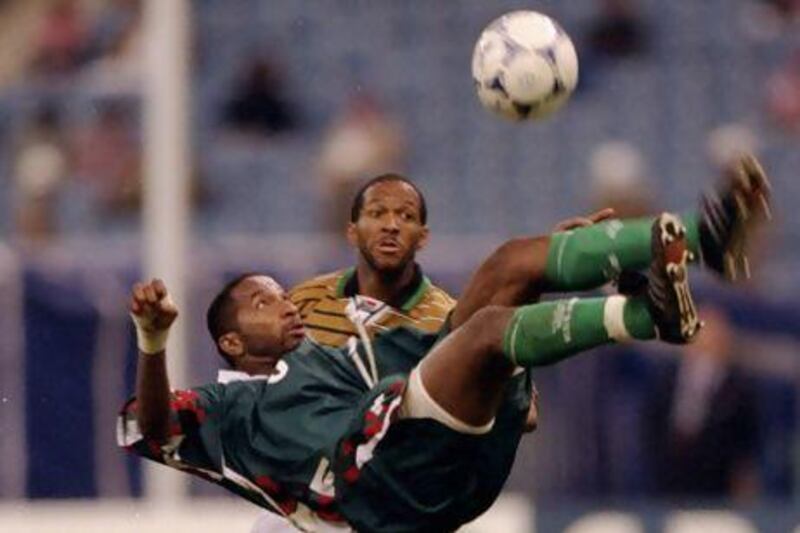When the Confederations Cup gets underway today in Brasilia, it will mark the start of the tournament's ninth iteration.
It will also mark the continuation of a competition that has its roots, more than any other football tournament in the history of Fifa, firmly planted in the sun-scorched sands of the Middle East.
It is 21 years since the inaugural Confederations Cup was held in Riyadh.
The tournament, then known as the King Fahd Cup, featured four teams: Saudi Arabia, Argentina, Ivory Coast and the United States. Each were champions of their own continent and each registered strong squads for the embryonic competition.
According to Fifa records, 70,000 spectators turned out to see Saudi defeat the US 3-0 on home soil, while their appearance in the final against Argentina five days later drew a further 75,000.
The South Americans, finalists at the World Cup two years earlier, ran out 3-1 winners, with goals coming from Leonardo Rodriguez, Claudio Caniggia and Diego Simeone.
Saudi Arabia went on to host a further two tournaments, in 1995 and 1997.
The 1995 tournament saw an increase in teams to six, with the European champions Denmark coming in to represent Uefa and Saudi qualifying as hosts rather than Asian champions - they were Japan that year. Denmark triumphed.
The 1997 tournament, the first organised by Fifa and recognised as the Confederations Cup, featured eight teams.
Oceania was represented by Australia, winners of the OFC Nations Cup, and Brazil took part as winners of the 1994 World Cup.
With the Asian Cup winners Saudi qualifying again as hosts, the AFC slot was filled by the UAE, beaten by Saudi in the final of the 1996 Asian Cup.
The Emirati referee Ali Mohammed Bujsaim had featured in 1995 - and would again in 2001 - but 1997 marked the Emirates' first involvement on the global stage since their 1990 World Cup campaign.
While Brazil strolled to victory, epitomised by a 6-0 final win over Australia in which Ronaldo and Romario both netted hat-tricks, the Middle East's two representatives endured a more arduous two weeks, managing just one win apiece. Saudi finished their group bottom after a 5-0 defeat to Mexico.
UAE finished third, their 1-0 win over South Africa being all but cancelled out by a 6-1 loss to Czech Republic.
While the format of the tournament has remained unchanged since 1997, Saudi's role as host country was relinquished.
For much of the 21st century, Fifa has utilised the quadrennial tournament as a test run for the World Cup hosts. South Korea and Japan, in 2001; Germany in 2005 and South Africa in 2009 all benefited from early indicators of where organisational improvements are required.
As for Middle East's on-field involvement, Iraq's appearance in South Africa in 2009 was the first by a Gulf country in 10 years.
The fact they produced two scoreless draws and a defeat means the region will not likely be missed this month.
Japan, reigning Asian Cup winners, will instead represent the continent, starting tonight against the hosts - and three-time winners - Brazil.





